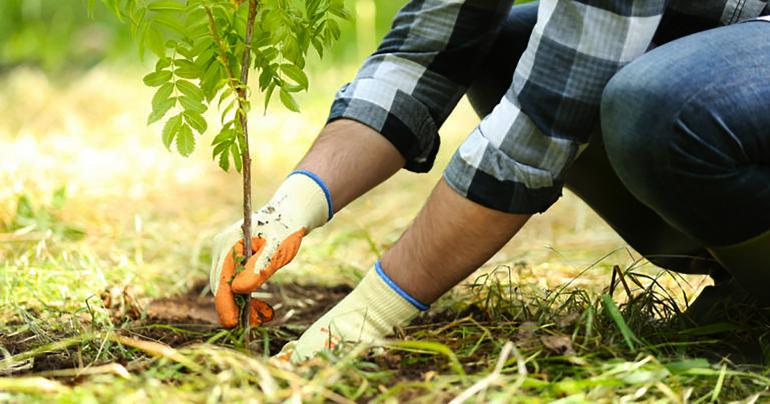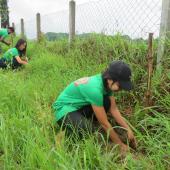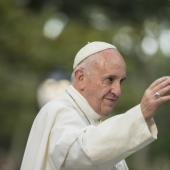International Mother Earth Day

“We must act decisively to protect our planet from both the coronavirus and the existential threat of climate disruption.” — António Guterres, UN secretary general
The UN General Assembly recognized April 22 as International Mother Earth Day through a resolution adopted in 2009.
The roots of the observance go back to the 1970s when environmental protection was not yet a priority of the national political agendas.
The UN Conference on the Human Environment 1972 in Stockholm marked the beginning of a global awareness of the interdependence between people, other living species and our planet, as well as the establishment of World Environment Day on June 5 and the UN Environment Program.
In 1992, Agenda 21, the Rio Declaration on Environment and Development, and the Statement of principles for the Sustainable Management of Forests were adopted by more than 178 Governments at the Rio de Janeiro Earth Summit, the first major conference in which Sustainable Development was the main issue discussed by member states.
From then on, all efforts to conserve the environment experienced an exponential growth: the Earth Summit in Johannesburg in 2002; the declaration of 2008 as the International Year of Planet Earth; the UN official Mother Earth Day Declaration; Rio+20 — resulting in a focused political outcome document, which contains clear and practical measures for implementing sustainable development — and recently, the Climate Action Summit 2019 and COP25, both focusing on the achievement of the Paris Agreement.
The United Nations celebrate this observance through the Harmony with Nature initiative, a platform for global sustainable development that celebrates annually an interactive dialogue on International Mother Earth Day.
Topics include methods for promoting a holistic approach to harmony with nature, and an exchange of national experiences regarding criteria and indicators to measure sustainable development in harmony with nature.
Mother Earth is clearly urging a call to action. Nature is suffering. Australian fires, heat records and the worst locust invasion in Kenya. Now we face COVID-19, a worldwide health pandemic link to the health of our ecosystem.
Climate change, man-made changes to nature as well as crimes that disrupt biodiversity, such as deforestation, land-use change, intensified agriculture and livestock production or the growing illegal wildlife trade, can increase contact and the transmission of infectious diseases from animals to humans (zoonotic diseases) like COVID-19.
From one new infection disease that emerges in humans every 4 months, 75% of these emerging diseases come from animals, according to UN Environment.
This shows the close relationships between human, animal and environmental health.
Visible, positive impact — whether through improved air quality or reduced greenhouse gas emissions — are but temporary, because they come on the back of tragic economic slowdown and human distress.
Let’s remind everyone more than ever this International Mother Earth Day that we need a shift to a more sustainable economy that works for both people and the planet. Let’s promote harmony with nature and the Earth.
The coronavirus outbreak poses huge public health and global economy at risk, but biological diversity as well. However, biodiversity can be part of the solution since this diversity of species would make difficult to pathogens to spread rapidly.
This Mother Earth Day, coinciding with the Super Year of Biodiversity, is focused in its role as an indicator of the Earth’s health.
There is growing concern about the health consequences of biodiversity loss and change. Biodiversity changes affect ecosystem functioning and significant disruptions of ecosystems can result in life sustaining ecosystem goods and services.
Specific linkages between health and biodiversity include impact in nutrition, health research or traditional medicine, new infectious diseases and influencing shifts in the distribution of plants, pathogens, animals, and even human settlements, most of them affected by climate change.
Despite ongoing efforts, biodiversity is deteriorating worldwide at rates unprecedented in human history. It is estimated that around one million animal and plant species are now threatened with extinction.
With this big picture, and the coronavirus scenario, our immediate priority is to prevent the spread of COVID-19, but in long-term, it is important to tackle habitat and biodiversity loss.
We are in this fight together with our Mother Earth.
Source: UN
Radio Veritas Asia (RVA), a media platform of the Catholic Church, aims to share Christ. RVA started in 1969 as a continental Catholic radio station to serve Asian countries in their respective local language, thus earning the tag “the Voice of Asian Christianity.” Responding to the emerging context, RVA embraced media platforms to connect with the global Asian audience via its 21 language websites and various social media platforms.














